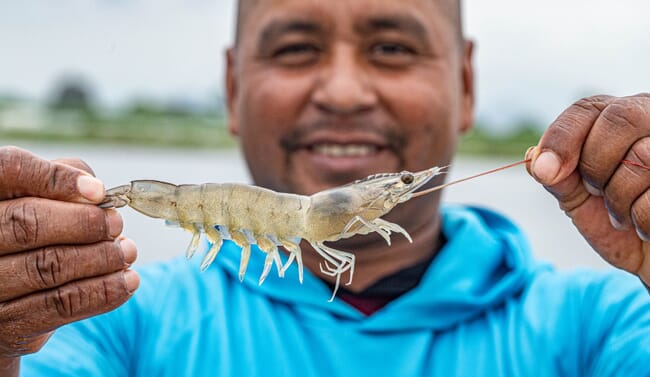
© SSP
The programme, launched mid-June in Guayaquil, Ecuador, aims to ensure that the workforce of participating companies earns sufficient income to lead a dignified life with their families. Through IDH’s Salary Matrix, a digital platform based on the Anker methodology, SSP members will be able to compare the actual wages they pay with the estimated living wage for their region. The system enables them to determine whether wages fall below, meet, or exceed this threshold, providing a technical foundation to support compliance with fair labour conditions.
“Today, SSP members are making history. Once again, we reaffirm that the well-being of the people who make the production chain possible not only can, but must be a priority. We continue to demonstrate that it is possible to offer premium-quality shrimp, compete in the most demanding markets, and at the same time adhere to the highest social and environmental standards. This measurement will allow us to support that commitment with concrete and verifiable evidence, raise the sector’s social standards, and inspire more actors in aquaculture to join this race to the top,” said SSP director Pamela Nath in a press release.
The decision to move forward with this initiative followed a pilot project conducted in 2023 in coordination with IDH and the Aquaculture Stewardship Council (ASC), which showed that several Ecuadorian farms not only met but even exceeded the estimated living wage threshold for the country’s southern coastal region.
“Accurately measuring living wages - using real-world data - is a crucial step towards ensuring fairer labour conditions. It allows us to pinpoint specific gaps and, most importantly, provides a solid foundation for meaningful action. This experience in Ecuador offers valuable insights for other seafood sectors aiming to embed social criteria into their sustainability efforts,” said Marjol van der Linden, programme manager for aquaculture at IDH.
Meanwhile, the executive president of the National Chamber of Aquaculture, José Antonio Camposano, stated: “The Ecuadorian shrimp industry complies with both national labour regulations and international standards, which facilitates the implementation of this type of tool. It is an opportunity to demonstrate, through systematic and measurable practices, that the country is ready to lead the social standard in aquaculture.”
With this action, SSP and its members strengthen their mission by incorporating a verifiable social dimension into a strategy that already includes high standards of social responsibility, environmental stewardship, quality, and traceability.



